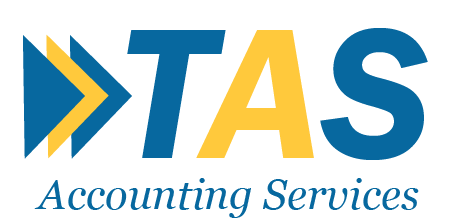Agricultural Accounting Guide for Ireland
Welcome to the Agricultural Accounting Guide for Ireland, your trusted resource for navigating the financial landscape of farming and agribusiness. Whether you’re running a small family farm or managing a large-scale operation, this guide helps you handle your financial obligations confidently. Designed by experts in agricultural accounting services in Ireland, it provides practical advice, real-world examples, and up-to-date regulatory insights.
Understanding Irish tax regulations, market volatility, and season-based income can be overwhelming. That’s why our guide simplifies core topics such as farm bookkeeping services, tax planning for farmers in Ireland, and agribusiness financial management, ensuring you’re well-prepared to make sound financial decisions year-round.
Our team of farm accountants in Ireland is here to support your financial success. Whether you’re seeking help with payroll services for farms, succession planning for farmers, or accounting for dairy farmers, we provide end-to-end solutions tailored to your business.
Detailed Agricultural Accounting Services – Ireland
At the core of our agricultural accounting services in Ireland is a suite of tailored solutions that empower farmers and agribusinesses to make informed financial decisions. Whether you’re navigating startup processes or planning long-term growth, our expertise ensures compliance, efficiency, and financial strength.
Farm Income and Expense Recording
Effective farm bookkeeping services are the foundation of any successful agricultural enterprise. It’s essential to document all income sources—crop sales, livestock, dairy, and government subsidies—while also tracking operating expenses like feed, fertilizer, utilities, and maintenance. Our farm accountants in Ireland use advanced systems to ensure transactions are logged accurately, making it easier to prepare for audits, taxes, and funding applications.
Why Farmers and Agribusinesses in Ireland Need Specialized Accounting
Agriculture operates in a uniquely complex financial environment, requiring tailored solutions that general accounting firms often can’t provide. That’s why our agricultural accounting services in Ireland are built specifically for the needs of farmers and rural enterprises. From farm bookkeeping services to agritech financial consulting, our goal is to ensure that your farm or agribusiness thrives financially—regardless of market volatility or regulatory changes.
Key Accounting Services for Farmers and Agribusinesses
Our agricultural accounting services offer a comprehensive approach to financial management tailored specifically to farming and agribusiness needs. From tax planning and expense tracking to cash flow management, we provide the financial expertise that helps you stay competitive, compliant, and profitable.
Farm Tax Planning and Compliance
Effective tax planning helps farmers and agribusinesses minimize tax liabilities while remaining compliant with Revenue requirements. We offer specialized tax planning services that maximize eligible deductions and credits.
Cash Flow and Budget Management
Agricultural income can be unpredictable, tied to seasonal yields and commodity prices. Our cash flow management services help agribusinesses maintain financial stability throughout the year.
Asset Management and Depreciation
Effective asset management is crucial in agriculture, where machinery, livestock, and property are major investments. We help manage and track these assets, including accurate depreciation calculations.
Bookkeeping and Financial Reporting
Keeping accurate financial records is essential for managing day-to-day expenses, tracking profit margins, and preparing for tax season. We offer comprehensive bookkeeping and reporting services tailored to agricultural businesses.
Farm Succession and Inheritance Planning
Farm succession and inheritance planning are crucial for farmers wanting to pass their business to the next generation. We provide expert advice on managing farm transfers and minimizing tax implications.
Expense Tracking and Deduction Management
Agricultural operations have complex expenses, from machinery maintenance to feed and veterinary costs. We track these expenses to ensure that every eligible deduction is claimed, maximizing tax efficiency.
Financial Planning and Investment Advice
Agribusinesses often require significant capital for growth, whether it’s for acquiring land or investing in the latest technology. To aid in this process, we offer comprehensive guidance on financial planning, investment strategies, and securing financing.
Why Choose Us as Your Agricultural Accountant?
Choosing us as your agricultural accountant means partnering with a team that understands the unique financial challenges faced by farmers and agribusinesses in Ireland. Here’s why Irish farmers and agribusinesses trust us with their financial needs:
Tax Planning and Financial Advice for Farmers in Ireland
Effective tax management is essential for sustaining and growing a profitable farming operation. At TAS Consulting, our agricultural accounting services in Ireland help farmers reduce liabilities, optimize returns, and plan confidently for the future. Whether you’re investing in equipment, expanding your land, or planning your retirement, our advice is grounded in sector-specific knowledge and tailored to your needs.
Long-Term Tax Planning for Farmers
Strategic tax planning can preserve capital and improve reinvestment potential. Our tax planning for farmers in Ireland includes:
- Timing capital purchases to maximize year-end deductions
- Utilizing capital gains tax advice for farmers on land and asset sales
- Leveraging family trust structures and income averaging
- Planning for retirement with tax-efficient drawdown strategies
With proactive planning and the support of our expert farm accountants in Ireland, farmers can ensure long-term financial stability and tax efficiency.
Investment Strategies for Agricultural Growth
Making the right investments can secure the future of your agribusiness. We help with:
- Evaluating ROI on farm infrastructure upgrades
- Qualifying for credits via sustainable equipment and machinery purchases
- Exploring diversification (e.g., agritourism, specialty crops)
- Integrating insights from agritech financial consulting
Our financial advisors analyze risk, reward, and tax implications so you can confidently expand operations while maintaining financial agility.
Working with an Agricultural Accountant
Partnering with a specialized farm accountant in Ireland offers unmatched value. Agricultural accountants understand the unique landscape of:
- Farm income tax services and industry-specific deductions
- Subsidy and farm subsidy compliance accounting
- Allowances for soil depletion, livestock depreciation, and capital purchases
- Succession planning for farmers and estate tax efficiency
Beyond compliance, our accountants provide strategic insight into cash flow, farm financial reporting, and farm budgeting and forecasting, enabling more informed, future-proof financial decisions.
Common Mistakes in Farm Financial Management
Running a successful farm requires more than fieldwork—it demands robust financial oversight. At TAS Consulting, we’ve helped hundreds of Irish farmers avoid costly errors by offering expert agricultural accounting services in Ireland. Below, we highlight the most common mistakes we see and how to prevent them with the support of trusted farm accountants in Ireland.
Inaccurate Record-Keeping
Poor farm bookkeeping services are a leading cause of financial inefficiencies. Many farmers rely on memory or manual logs to track transactions, leading to incomplete or erroneous records.
Why it matters:
- Inaccurate data complicates farm income tax services and can lead to non-compliance.
- It weakens your ability to access grants, subsidies, or credit.
- It hampers farm financial reporting and decision-making.
Solution:
Implement digital cloud accounting systems and maintain monthly reconciliation to ensure up-to-date and accurate records for audits and planning.
Overlooking Cash Flow Needs
Focusing on profits while ignoring liquidity is another major pitfall. Farm operations often experience seasonal cash swings, especially during planting or harvesting seasons.
Consequences:
- Cash shortages affect the ability to pay workers, buy supplies, or maintain equipment.
- Lack of planning may require emergency borrowing at high interest.
Our Advice:
Use proactive farm budgeting and forecasting strategies, supported by our agricultural accountants, to plan for seasonal fluctuations. Establish lines of credit and build reserves during peak income periods.
Failing to Seek Professional Guidance
Managing your farm’s finances independently might seem cost-effective, but it can result in missed tax-saving opportunities, compliance errors, and inefficient business planning.
Benefits of Professional Help:
- Tax planning for farmers in Ireland is complex, and missing deductions can be costly.
- Professionals handle everything from succession planning for farmers to grant applications.
- You gain strategic advice through financial advisory for agribusiness.
Bottom Line:
Partnering with a knowledgeable farm accountant in Ireland offers long-term savings and peace of mind.
Ignoring Tax Implications
Many farmers fail to incorporate proper tax planning into their business model, especially when dealing with income from subsidies, agritourism, or grants.
Risks:
- Unexpected tax liabilities on farm diversification ventures
- Overlooking capital gains tax advice for farmers when selling land or equipment
- VAT confusion with VAT compliance for farmers
How We Help:
Our accountants align your operations with current regulations to minimize liabilities and improve compliance. We integrate tax strategies into your year-round operations to ensure better agricultural audit services and financial control.
By recognizing and addressing these common financial management mistakes, farmers can secure a more stable and prosperous future for their operations.
Key Points and Benefits of Effective Farm Financial Management
Effective financial management is the cornerstone of a resilient and profitable farming business. At TAS Consulting, we provide strategic agricultural accounting services in Ireland to help farmers and agribusinesses gain control over their finances, minimize risks, and make better long-term decisions. Below are the core advantages of working with experienced farm accountants in Ireland and adopting proactive financial strategies.
SWOT Analysis
Case Studies
Grant Funding for an Agri-Tech Startup
Succession Planning for a Family Sheep Farm
Dairy Farm VAT & Payroll Overhaul
Frequently Asked Questions
Why hire farm accountants Ireland over a general accountant?
Specialists understand farm subsidy compliance and EU schemes.
How does tax planning for farmers Ireland reduce bills?
By claiming stock relief, stamp duty exemptions, and income averaging.
What’s included in farm bookkeeping services?
Monthly profit/loss tracking, expense categorization, and Revenue-ready records.
Do you handle payroll services for farms with seasonal workers?
Yes, including PRSI and holiday pay compliance.
How can succession planning for farmers protect my family?
Legally transfers assets while minimizing tax (e.g., agricultural relief).
What’s the cost of agricultural accounting services Ireland?
From €1,500/year for basic bookkeeping; custom quotes for audits.
Can you help with agricultural grant application assistance?
Yes, from GLAS to TAMS—we maximize approval chances.
Do dairy farms need different accounting for dairy farmers?
Yes, milk quotas, herd depreciation, and feed costs require tailored reporting.
How often should I update farm financial reporting?
Quarterly for active enterprises; monthly during subsidy cycles.
What’s your turnaround for VAT compliance for farmers?
VAT3 filings completed within 48 hours of document submission.




























